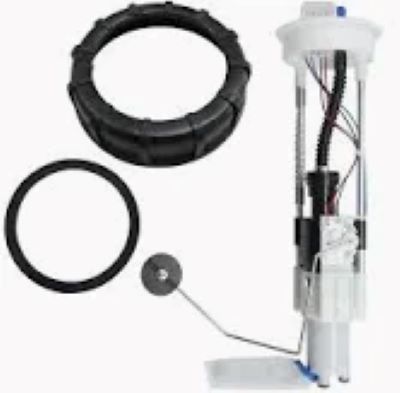Additionally, while a fuel pump can be cleaned, it is usually not an ideal solution to salvage an old or dirty pump that is already acting up. The majority of contemporary fuel pumps are non-serviceable, which means they either operate appropriately or need to be replaced. If it has only been gummed up by debris or contaminants, cleaning the pump can restore performance…sometimes. These contaminants can inhibit the flow of fuel, decreasing efficiency and if not addressed can be catastrophic — given that most fuel pumps operate between 30-80psi depending on the application.
Step 1: The fuel pump needs to be cleaned, pulled out of the tank. The process also typically includes emptying the tank, dropping it out of the car (or at minimum, disconnecting fuel lines), and actually getting to the pump itself, which could be a multihour procedure depending on how that manufacturer designed their cars. A few technicians will advises a preemptive effort in the form of a fuel system cleaner, that can be put into the gas tank which may help free up small clogs. Though, these additives are not as efficient in cleaning the pump itself, they rather take care of minute running deposit in the fuel lines and injectors.
In the automotive industry fuel pumps are often one of the top five failure rate items; a study from 2019 suggests that around 20% of all fuel system failures associated with an equipment stopped running were due to clogged gasoline filters, usually worn out by low quality gasoline or particles and wear in the gasoline being refilled into vessels. Fuel pump filter: Because this is what prevents contaminants from reaching the engine, fuel pump filters should be checked or replaced regularly; a clogged filter requires the pump to work harder (harder reference), hence shortening its lifespan.

If debris has accumulated inside the pump itself, disassembly and manual cleaning may be necessary in more severe instances. It includes then scrubbing to eliminate grease and residue using particular instruments and cleansers. The process can recover some functionality, yet even cleaned pumps often fall below their original efficiency and must be replaced.
Recently, automotive expert Jay Leno claimed "your body is like your car; the more you put into it, the longer it lasts. Prevent Fuel Pump failures in the first place by regularly maintaining your vehicle, such as replacing the fuel filter and using premium grade gas.
Both older and newer fuel systems suffer from internal wear, and a quick cleaning of the injector or filter often proves to be little more than a band-aid. At around 100,000 miles —or less, in some cases—your parts begin to meet replacement intervals anyway. So instead of constantly putting hubs through a preventative maintenance cycle for increasing costs at each visit due to hidden damage that couldn't be prevented, just replace the entire assembly when it's approaching its end-of-life point (usually vehicle dependent is NA).